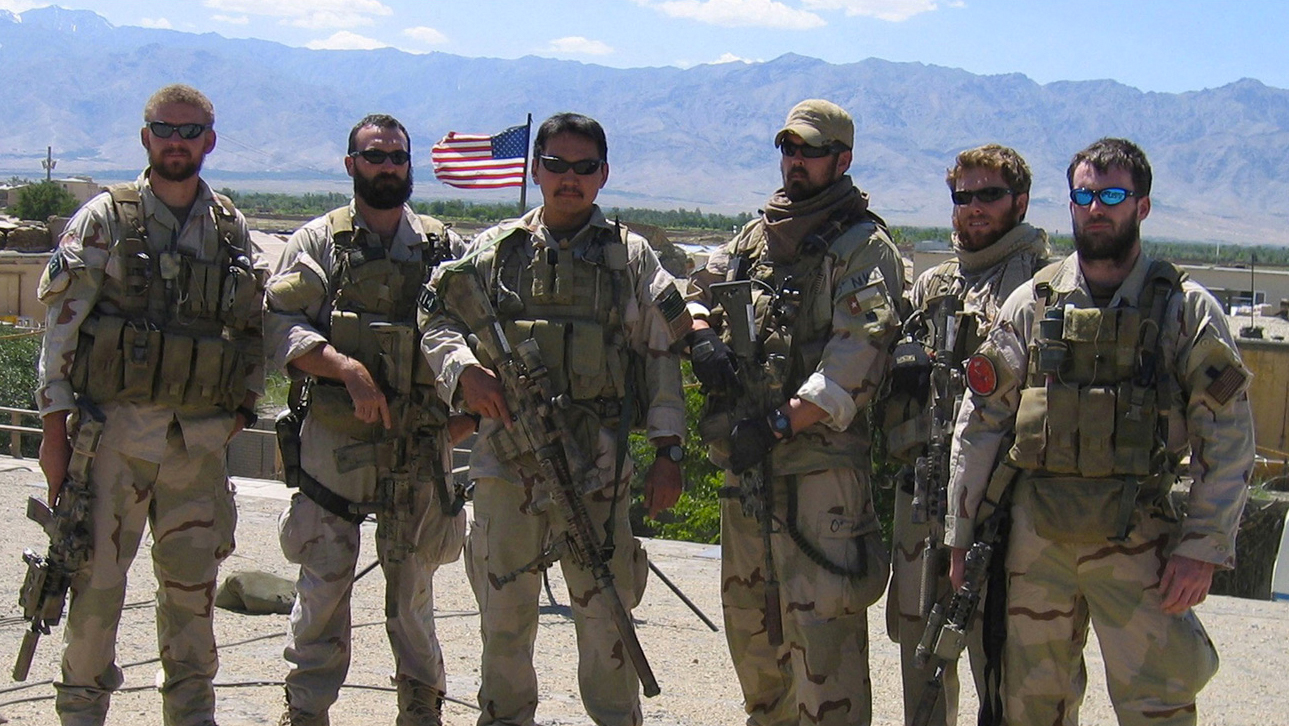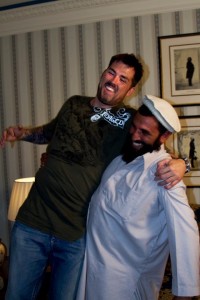NANAWATAI
Note:
This essay relies heavily on The movie, Lone Survivor. I’m not going to give a spoiler alert, because if you can’t tell from the movie’s title how the movie ends, um, I don’t know what to tell you.
The movie ended and I was speechless. Literally. I sat there in the theater next to my wife as others left, just staring at the screen. Tears rolled down my cheeks and were soaked up by my beard. I was speechless; motionless. At the end of the movie the word Pashtunwali appeared on the screen with its definition. Although the definition wasn’t quite correct, it left its impression.
Pashtunwali ( پښتونوالی) or Pakhtunwali is a non-written ethical code and traditional lifestyle which the indigenous Pashtun people follow. A component of , is the principle of Nanawatai ( ننواتی, translation sanctuary). This tenet of the Pashtunwali code of the Pashtun people allows a beleaguered person to enter the house of any other person and make a request of him which cannot be refused, even at the cost of the host’s own life or fortune. A similar code of conduct is used by the neighbouring Baluch people. Traditionally it is used to refer to a request for sanctuary, whereby the host must be willing to fight or die for the sake of anyone who comes knocking at his door seeking refuge, even if it is a sworn enemy. As the burden of sanctuary and protection extends even to fighting against government troops on behalf of the person seeking refuge, some have suggested that Mullah Omar’s refusal to turn in Osama bin Laden was due only to his having availed himself of nanawatai.1
At the end of the movie, wounded Navy SEAL, Marcus Luttrell (played by Mark Wahlberg), is brought into the home of an Afghani man, Mohammad Gulab. Mohammad understands what he is doing. He is protecting an American soldier from the Taliban. By doing so, he not only puts his life at risk, but the life of his son, and the lives of his entire village. He does this because of one of the tenets of Pashtunwali. The tenet is Nanawatai.
As I watched Mohammad bandage the wounds of Marcus Luttrell, Mohammad’s son also watched. As Mohammad washed Marcus Luttrell’s bloody body, Mohammad’s son also watched.
Nanawatai.
Mohammad’s life was at risk. Mohammad’s son’s life was at risk. Mohammad’s village was at risk.
Nanawatai.
I thought of the powerful example that Mohammad was showing his son. Mohammad, nor anyone in the village spoke English and Marcus Luttrell did not speak Mohammad’s language. Yet this father was able to teach his son something powerful: To protect the defenseless even at the risk of your own life, and perhaps the life of those whom you love.
Nanawatai
How many times in my life have I stood in silence as someone was being belittled?
Nanawatai
How many times in my life did I join in belittling someone because they were different than me?
Nanawatai
How many times in my life have my daughters heard me say something unkind about someone that had hurt me?
Nanawatai
How many times in my life have I said nothing as someone said something objectifying of a woman?
Nanawatai
How many times in my life have I said something objectifying of a woman?
Nanwatai
How many times have I stood in silence as someone has said something derogatory about gays and lesbians?
Nanwatai
How many times have I said something derogatory about gays and lesbian?
Nanwatai
How many times have I allowed someone to say something derogatory of another’s religion, because somehow, I thought it made Mormonism appear better?
Nanwatai
How many times have I said something derogatory of another’s religion, because somehow, I thought it made Mormonism appear better?
Nanwatai
How many times have my daughters seen me defend the defenseless and “heal the broken hearted and bind up their wounds?”2
Nanwatai
How many times have I stood up for the defenseless, even if they are my “enemies”, at the risk of me being ostracized by my friends?
Nanwatai
How many times have I stood up for the defenseless, even at the risk of my family being ostracized?
Nanwatai
That night I didn’t speak for several minutes. I thought and pondered about the lesson that I had been taught by an Afghani man. A Mormon man called to repentance by an Afghani Muslim.
Nanwatai.
_____________
Notes:
1 Wikepedia ( the source of all infallible truth). I did confirm the information with other sources.
2 Psalms 147:3 (NIV)






Michael, I’ve never met you (I know your brother Paul), but the posts you have written always seem introspective, brutally honest, and raw, and I always seem to identify with them, even though I don’t always agree them. Maybe it’s our shared first name… :).
Michael,
Thank you. That is what I hope people will get with my essays. Maybe not always an agreement, but a mutual respect for our struggles and growth.
Forgot to mention that I really loved this post. Thanks.
Hmm. It seems like there’s a difference between what Mohammad did (upholding his tribal code of honor by respecting a stranger’s request for sanctuary, even at great cost to himself) and what the OP is talking about (not being mean to people).